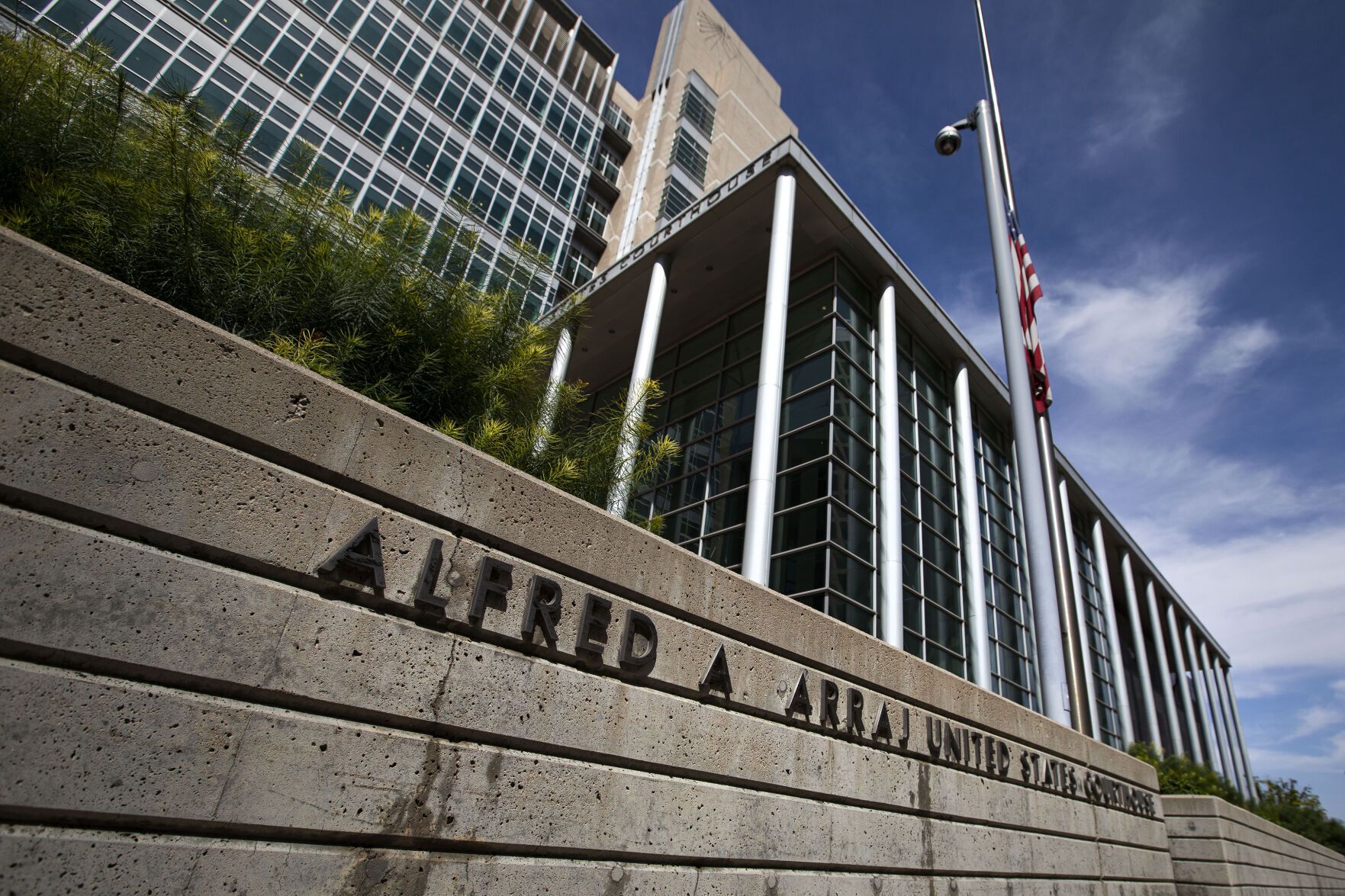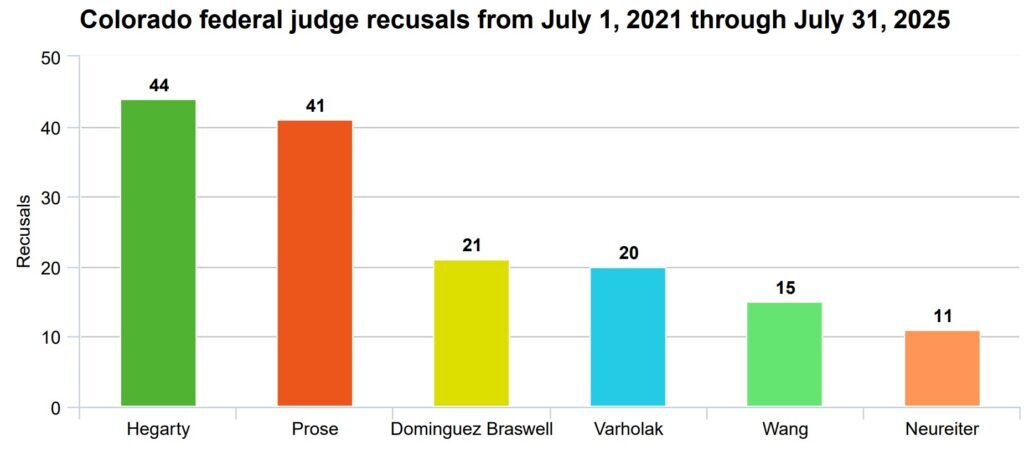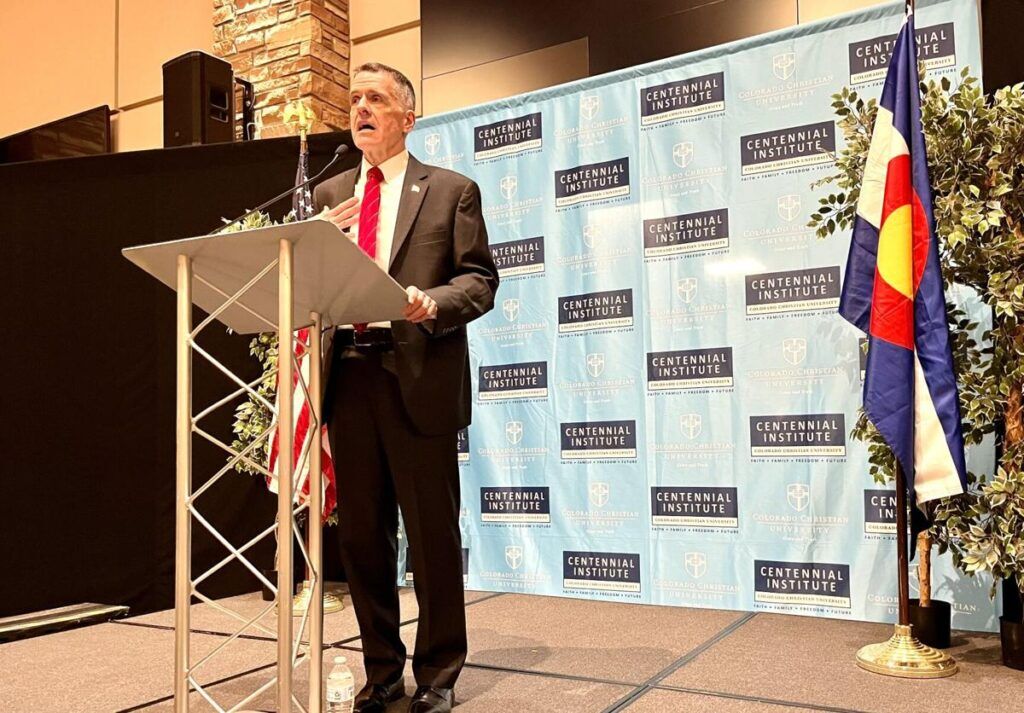Colorado’s federal judges recused 200+ times in 4 years for variety of reasons

Colorado’s federal judges issued orders recusing themselves from cases at least 203 times in four years, with reasons ranging from unspecified appearances of partiality to potential conflicts created by their prior employment and family connections.
One judge also noted in recusing himself that if he ruled against an attorney who was his personal friend, “it might make for an awkward discussion in future social settings.” Another judge recused from the case of a plaintiff who was being separately prosecuted for making threats against her.
Colorado Politics reviewed the docket of Colorado’s U.S. District Court and located 203 orders of recusal between July 2021 and July 2025. Due to heavy turnover, most members of the court assumed their current roles in 2021 or later.
The orders were issued by presidentially appointed district judges, semi-retired senior district judges and magistrate judges, who the district judges hire to assist with workloads. Two orders, issued by Chief Judge Philip A. Brimmer, disqualified the entire bench from hearing that pair of cases.

The governing body for the federal judiciary mandates that each court adopt an automated screening policy for judges’ financial conflicts. Further, under federal law, judges must disqualify themselves from assigned cases if their “impartiality might reasonably be questioned.” There are also specific reasons mandating recusal, including if judges worked on the case previously as an attorney, if they harbor bias, or if anyone within “a third degree of relationship” is involved with or affected by the proceeding.
The most common reason Colorado’s judges cited for recusing — more than 93% of the time — was that their impartiality might be reasonably questioned.
Former Magistrate Judge Michael E. Hegarty, who retired in January, was responsible for nearly 22% of the court’s recusals. The overwhelming majority of his 44 recusals were due to his son’s law firm, Hall & Evans, appearing as counsel in an assigned case.

Michael Karlik michael.karlik@coloradopolitics.com
Magistrate Judge Susan Prose had the second-highest number of recusals, which all pertained to the potential appearance of partiality. Prior to joining the court in May 2023, Prose worked as a government attorney who defended federal defendants from lawsuits, including from incarcerated plaintiffs.
“Upon review of the file of this case, I conclude that I have knowledge from my prior practice,” she wrote in a December 2023 recusal order. She had previously litigated against the self-represented defendant in a previous lawsuit containing unrelated legal claims.
Magistrate Judge Maritza Dominguez Braswell likewise pointed to her prior employment in most of her 21 disqualifications. As a former high-ranking official under Attorney General Phil Weiser, Dominguez Braswell cited her relationship with state government defendants or their counsel in civil lawsuits.
Magistrate Judges James M. Candelaria and N. Reid Neureiter were among the few judges who identified a specific reason for their non-participation in cases. Candelaria, who serves part-time in Durango, recused from eight criminal cases, noting he had participated as a prosecutor in the defendants’ current or prior criminal proceedings.
Neureiter recused 11 times. His reasons included that his son works for Amazon (in a case where Amazon was a defendant) and that he has photographed athletic events for East High School (in a case where Denver Public Schools was the defendant). In multiple cases, Neureiter wrote that one of the attorneys was his “personal friend.”
If he were to rule in favor of the attorney’s client, “objective observers might question whether the decision was fair and unbiased. If I were to rule against,” he wrote, “it might make for an awkward discussion in future social settings.”
Varying levels of detail
In total, recusals from the magistrate judges comprised more than 80% of the total — driven in part by the unique circumstances of Hegarty, Prose and Dominguez Braswell. Colorado Politics’ review also found multiple judges who did not appear to issue any recusal orders in the four-year window. The court’s clerk suggested the docket search may not have produced all relevant documents.

Judge Nina Y. Wang recused herself on 15 occasions, according to Colorado Politics’ data, including cases she handled as a magistrate judge before her 2022 appointment to the district judge bench. In some instances, she noted personal relationships with counsel, but otherwise cited the general admonishment about appearances of partiality.
Some recusal orders, while lacking detail, became clear due to outside events. Two judges issued recusal orders after The Wall Street Journal reported in 2021 that they and more than 100 other judges nationwide had handled cases despite having undisclosed financial conflicts in a corporate litigant.
Subsequently, Senior Judge Lewis T. Babcock recused from a case involving Comcast, in which he held company stock, citing “potential conflicts of interest.”
Senior Judge R. Brooke Jackson issued four recusal orders on the same day in January 2022, acknowledging he or his wife owned stock in one of the parties to the case. Wells Fargo was named as a defendant in each of the lawsuits.
Other times, recusals were more mysterious. In two cases implicating Colorado’s anti-LGBTQ-discrimination laws, Judge Charlotte N. Sweeney, the state’s first openly gay federal judge, recused herself without elaboration.
One case was 303 Creative v. Elenis, a 2016 lawsuit in which the U.S. Supreme Court narrowed marketplace protections for LGBTQ customers. Upon its return to Colorado, the case was reassigned to Sweeney, who had joined the court the prior year. She recused.
In the second case, Chiles v. Salazar, Sweeney curiously recused nearly two years after she denied a preliminary injunction to a Christian counselor challenging Colorado’s restriction on “conversion therapy” for LGBTQ children. Her recusal came one month after the U.S. Court of Appeals for the 10th Circuit upheld her order. The Supreme Court has since accepted the case and will hear arguments this fall.
Early in the Chiles case, Dominguez Braswell, the magistrate judge also assigned to the lawsuit, similarly recused herself due to her relationship with lawyers for the Colorado Attorney General’s Office, where she previously worked.

Sweeney additionally recused herself on two occasions because she had been involved in related prior litigation. In January, she stepped aside from a criminal case in which one defendant, accused of a money laundering conspiracy, was also a civil litigant she sided against in 2023. Soon after joining the bench in 2022, Sweeney also recused from an employment discrimination lawsuit that overlapped with a case she litigated as an attorney.
Chief Magistrate Judge Scott T. Varholak generally provided specific, brief reasons for stepping aside. He acknowledged representing an incarcerated plaintiff when the man was previously on trial and Varholak was a public defender; that his wife’s law firm was involved in multiple cases; and that he may have financial ties to a corporate litigant.
Unusual reasons
In two cases, the court’s entire bench recused itself. Both were civil lawsuits in which a member of the court was named as a defendant. The cases were ultimately assigned to a judge outside of Colorado.
In another instance, three district judges disqualified themselves on the same day from handling a First Amendment lawsuit against the Woodland Park School District. First, Brimmer, the chief judge, cited his social interactions with one of the plaintiff’s attorneys as grounds for recusing. Then Wang recused herself due to the potential appearance of partiality. Finally, Judge Regina M. Rodriguez recused herself without citing any reason.
The case landed on the desk of Judge Daniel D. Domenico, who notified the parties that he knew attorneys on both sides of the case. He invited either side to seek his recusal if they had concerns.

Finally, a handful of cases featured unusual justifications for a judge’s recusal. Senior Judge William J. Martínez stepped aside from a pair of civil lawsuits where he had either filed a professional conduct complaint against one of the attorneys or the plaintiff had filed a misconduct complaint against him.
Retired Magistrate Judge Kristen L. Mix recused from a civil lawsuit in which the plaintiff’s threats against her were the subject of a state criminal case.
Magistrate Judge Richard T. Gurley, who serves part-time in Grand Junction, recused from the high-profile case of convicted Mesa County clerk Tina Peters, who is seeking release from prison pending appeal. Although Gurley only cited the general appearance-of-partiality justification, he was a Mesa County trial judge at the time Peters was being prosecuted for her role in a security breach of voting equipment.












